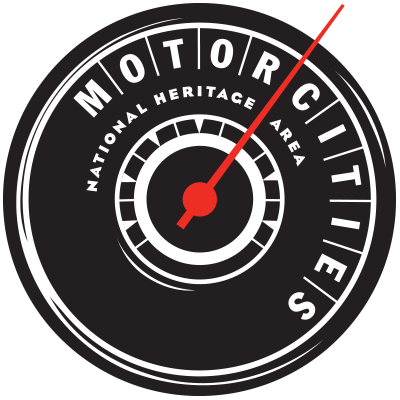By Robert Tate, Automotive Historian and Researcher
Images Courtesy of Ford Motor Company Archives and Car and Driver
Published 8.31.2022
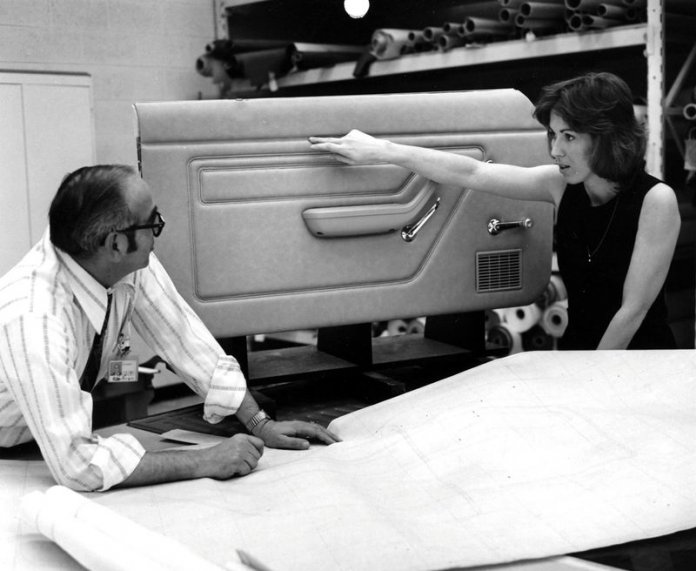 Mimi Vandermolen working on a Ford interior (Ford Motor Company Archives)
Mimi Vandermolen working on a Ford interior (Ford Motor Company Archives)
Throughout our automotive history, there have always been individuals that leave a positive mark with their great talent. Often, they will be remembered in the automotive community as a great leader and a positive role model.
Born in the Netherlands, Mimi J. (Willemina) Vandermolen was a talented Ford Motor Company designer that helped create and shape many automotive projects. Her journey started in 1965 at the Ontario College of Art in Toronto, where she graduated in 1969 with a degree in Industrial Design. Within a year, Vandermolen was hired by Ford, joining a growing number of female designers that came on board during the late 1960s and early 1970s.
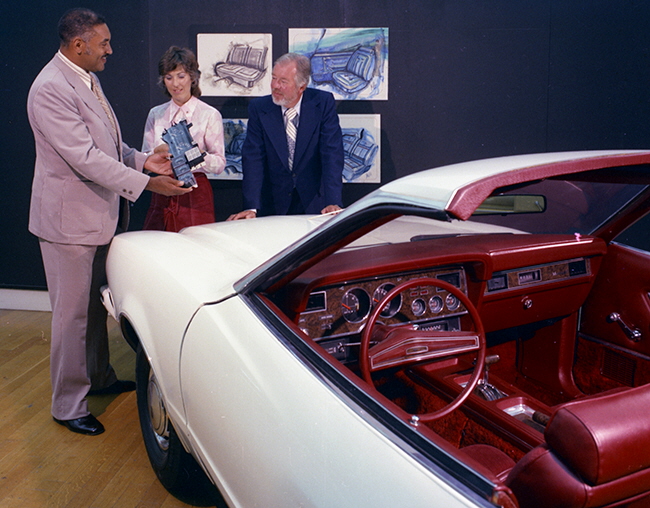 Vandermolen with McKinley Thompson (left) and another colleague with the Mustang II (Ford Archives)
Vandermolen with McKinley Thompson (left) and another colleague with the Mustang II (Ford Archives)
Her first automotive design assignment was working on the 1974 Mustang II. Then, Vandermolen joined the team reshaping the 1975 Granada, contributing to both the interior and exterior design proposals. Later, she became the lead on the 1986 Ford Taurus interior, which offered her a great opportunity to advance her career in the 1980s.
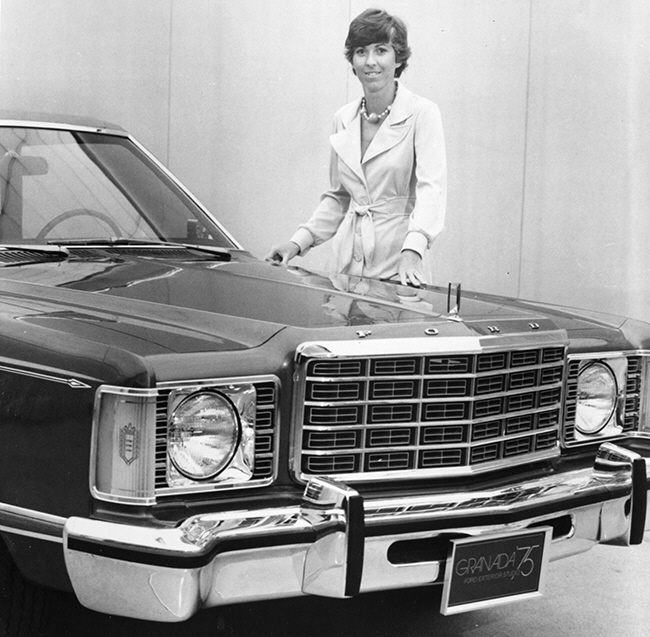 Vandermolen with the 1975 Ford Granada (Ford Motor Company Archives)
Vandermolen with the 1975 Ford Granada (Ford Motor Company Archives)
According to The Henry Ford, “She recognized from the start that the key to the potential success of the Taurus was to create an interior that mirrored the style and theme of its exterior body.”
As Vandermolen continued her career at Ford, she realized that her designs had to meet the needs of the engineers and manufacturers to get approved. In the beginning, she asked the Ford design team to address how a driver could both have easy access to the instrument panel while riding in a vehicle that was both spacious and inviting to the driver and passengers.
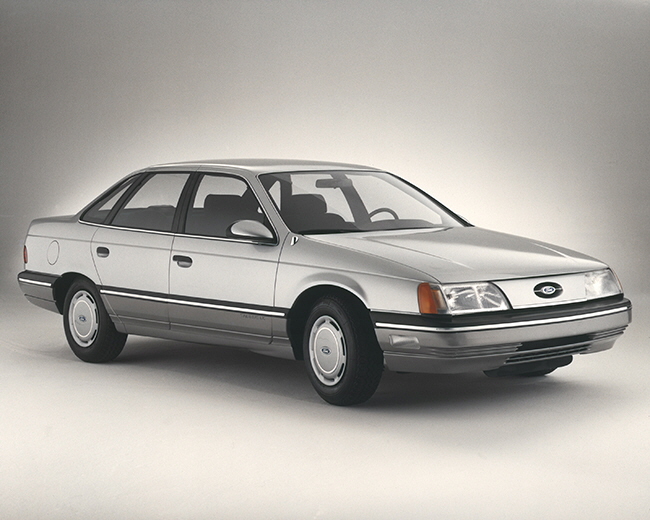 The 1986 Ford Taurus (Ford Motor Company Archives)
The 1986 Ford Taurus (Ford Motor Company Archives)
Vandermolen’s designs emerged out of a concern for the driver and passengers’ safety. Her interior proposals were great and very functional. The speedometer, for example, was redesigned with a large needle to show incremental changes in speed while driving. With the Taurus, for example, Vandermolen said the design of the seats started from scratch. It was the most difficult part of the car to get right. The process took 2 1/2 years to complete. Ford called the Taurus the “Rounded Edge Revolution,” and the great looking model became Ford’s number one selling vehicle.
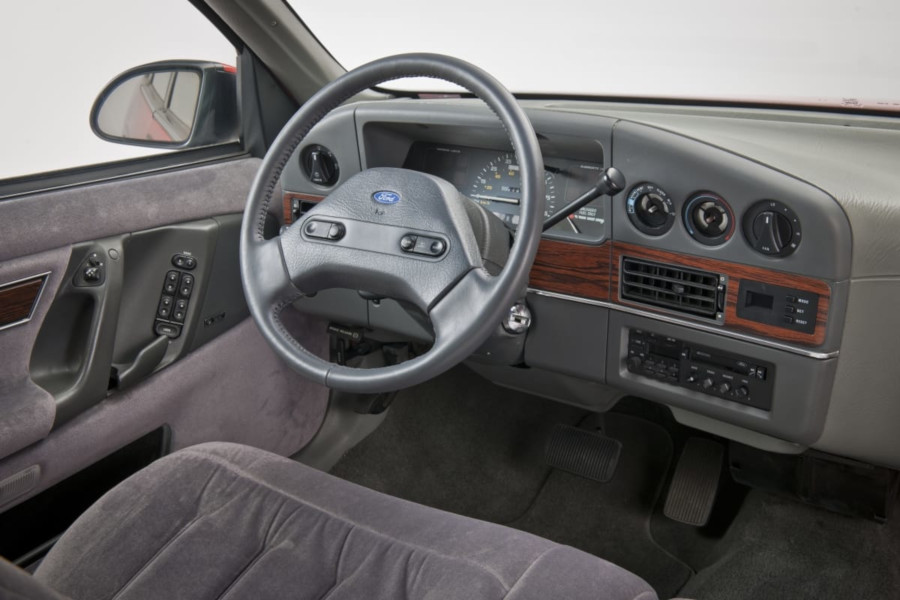 The 1986 Ford Taurus interior (Ford Motor Company Archives)
The 1986 Ford Taurus interior (Ford Motor Company Archives)
Vandermolen later became in charge of the development and design of the 1993 Probe. I remember when this model was introduced to the public at Cobo Center in the fall of 1992. I thought it was a great looking vehicle design.
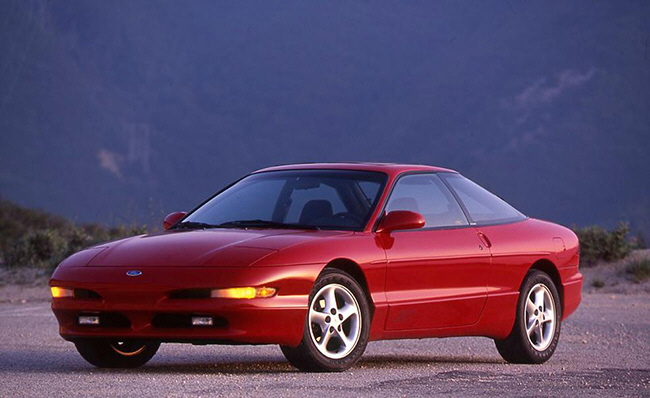 The 1993 Ford Probe (Ford Motor Company Archives)
The 1993 Ford Probe (Ford Motor Company Archives)
On a historical note, Ford’s design studio was established in 1935, and it wasn’t until the end of World War II that women began joining the talented design group. Their first female designer was Leota Carroll, who was hired in June 1945.
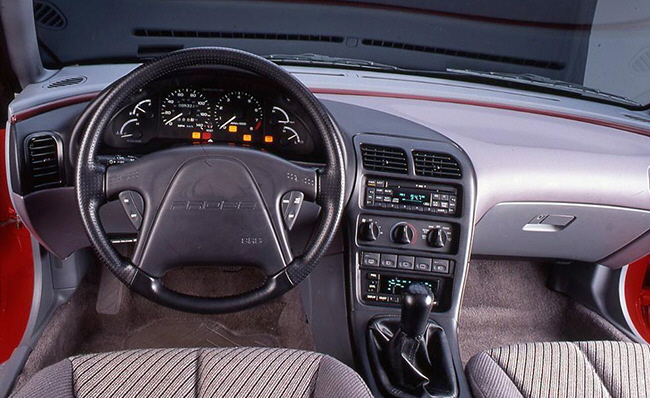 The 1993 Ford Probe interior (Car and Driver)
The 1993 Ford Probe interior (Car and Driver)
In 1987, Vandermolen was promoted to the position of Design Executive for small car platforms, overseeing interior and exterior design proposals for North America. She became the first female to reach this level at any automaker. She had created a great legacy for herself, becoming a part of auto design history.
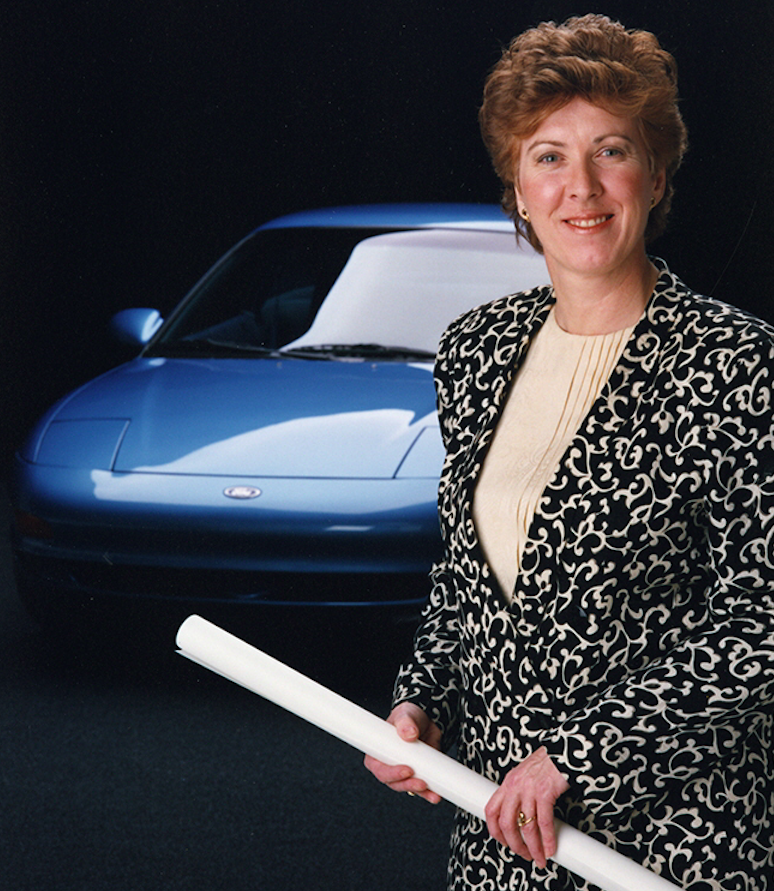 Mimi Vandermolen with the Ford Probe (Ford Motor Company)
Mimi Vandermolen with the Ford Probe (Ford Motor Company)
In conclusion, Mimi Vandermolen will always be looked upon as a talented woman who helped shape automotive design. She once said the following about automotive design: “The marvelous thing was that you could see it when you finished.”
Bibliography
Veit, Rebecca. “Mimi Vandermolen, the Ergonomics Genius behind Ford’s Rounded Edge Revolution.” August 4, 2015.
The Henry Ford. “Mimi Vandermolen and the 1986 Ford Taurus.” Henry Ford Archive Insight. November 4, 2021.
Crippen, Dave. “Automotive Design Oral History Project: The Reminiscences of Willemina J Vandermolen.” Benson Ford Research Center, The Henry Ford. 1985.

